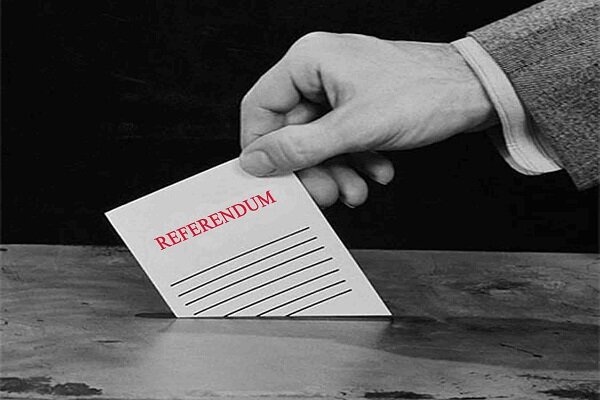Polling stations, in Algeria, opened, Sunday at 8.00 a.m. nationwide, to receive more than 24 million voters called to take a decision on the draft Constitution amendment, submitted to popular referendum.
2016’s organic law, related to electoral system, stipulates that the polls open at 8.00 a.m. and close on the same day at 7.00 p.m. and that it lasts only one day, set by the presidential decree provided for in the article 25 of the current organic law.
At the practical and technical levels, the conditions of the holding of the referendum are defined in the article 150 which states: “two ballot papers printed in different colors, one marked YES, the other marked NO, are put at the electors’ disposal.”
The same article underlines that “the question for the electors is formulated in the following way: “Do you agree on the proposed draft Constitution revision?,” pointing out that the technical characteristics of the ballot papers are defined by regulation.
The holding of the popular referendum on the draft constitutional amendment on November 1st, coinciding with the 66th anniversary of the outbreak of the Glorious National Liberation War against the French colonial power (1954-1962), was not chosen by chance. Hence, it is highly symbolic, marking Algeria’s reconciliation with itself and its history and the first steps to put the country back on track after the abuses committed in recent years. The choice of November 1 for the referendum on the Constitution, confirms, once again, that the reference point (1st November Revolution) which has made the glory of the Algerian people cannot depart away. November 1 of this year will be the proclamation of a new era, based on active citizenship, building of the rule of law, the promotion of democratic action, the strengthening of the stability of the State, popular legitimacy, social justice and equality of opportunity, and the end of era of nepotism, the grip and monopolization of power and wealth.
This revision is aimed to be a return to the channels of legitimacy of power assaulted and usurped by the previous unlawful practices, a return to a truly civil system, a democratic regime and independent state for which Algerian Revolution had been yearning since 1 November 1954.
In this vein, Algerian President Abdelmadjid Tebboune assured that the Algerian people will be, once again, at the rendez-vous with history to make the expected change, Sunday, November 1, with a view to instituting a new era capable of achieving the aspirations of our people to live in a strong, modern and democratic state.
The draft amendment to the Constitution, drawn up by a group of experts in Constitutional Law, on the basis of 5,018 amendment proposals from various sections of society, national figures and political forces, was adopted on 6 September in the Council of Ministers, before receiving the approval of the two chambers of Parliament, successively on the 10th and 12th of the same month, according to APS.
During this Council of Ministers, the Algerian President of the Republic affirmed that the constitutional amendment project “is in line with the requirements of the building of the modern state and responds to the demands of the authentic blessed popular Hirak”, stressing having ensured that the Constitution, in its new version, is “the most widely consensual, despite the obstacles imposed by the health crisis of Covid-19”.
Elected on December 12, 2019 to the supreme magistracy in Algeria, President Tebboune had indicated that the main contours of the amendment of the Constitution limit presidents and parliament members to two terms, make it easier to create political parties, hand some presidential powers to the prime minister, prevent autocratic excesses, separate and introduce balance of powers, among other changes.
The draft amendment to the Constitution has six axes. These are “fundamental rights and public freedoms”, “strengthening of the separation and balance of powers”, “independence of justice”, “the Constitutional Court”, “transparency, prevention and fight against corruption “and” the National Independent Election Authority “.
President Tebboune had indicated that the referendum on the revision of the constitution, which was among his promises made when he was elected in December, will be followed by a revision of the electoral code to ensure “the regularity of the elections for the preservation of the popular will” and to promote “the emergence of a new generation of elected officials on the political scene “.
By Hana Saada
FA/PR

























Your Comment